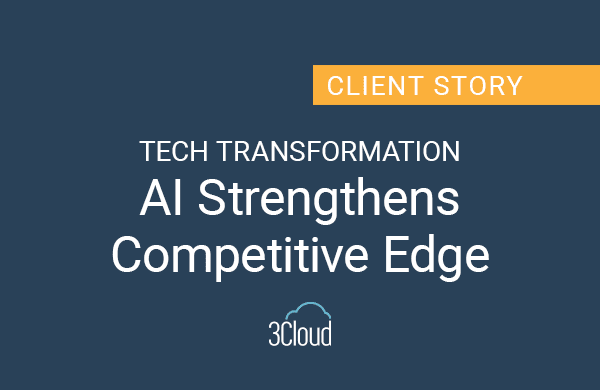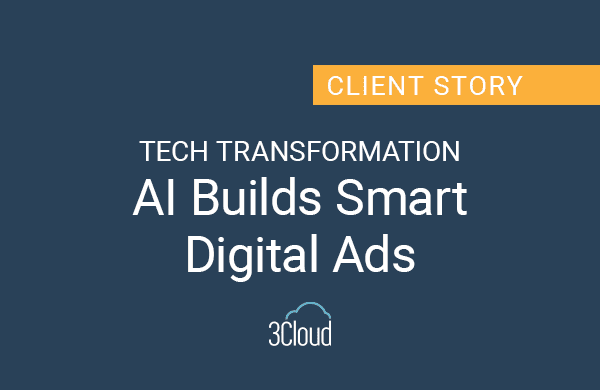Smart business leaders know they must embrace technology to stay competitive. Enterprise Application Development lets you create and deploy customized apps for your business. This technology provides enhanced data processing, robust security features, and streamlined deployment processes. Let’s examine current trends in this field that are making Enterprise App Development so powerful.
1. AI-Powered Solutions for Enterprises
IDC’s market analysts have boldly labeled AI as “inescapable.” They predict that by 2025, at least 90% of new business applications will incorporate artificial intelligence. AI development services have become a focal point for every enterprise aiming to optimize and supercharge their applications. This technology trend shows no sign of fading, with AI-driven solutions proving their mettle by enhancing business offerings and driving higher conversion rates.
Artificial intelligence is a leading trend in enterprise software development, making significant inroads across industries like broadcasting, healthcare, banking, and consumer products. AI enables companies to stay relevant by capitalizing on real-time engagement and growth opportunities. When you choose enterprise application development and fuse it with AI, you unlock the potential to create unique applications for your business, whether it’s AI-enabled eCommerce platforms, gaming apps, chatbots, HR management tools, and more. See how to Build Big with Generative AI.
2. Microservices for Enterprise Software Solutions
Microservices, as the name implies, are small, purpose-specific applications designed to meet specific business objectives. These lightweight, agile components consist of reusable code blocks, each performing a specific function. Microservices empower businesses by providing employees with the tools and resources they need, effectively serving as customizable corporate framework plugins. They keep employees updated on news, meeting schedules, expenses, records, and more, making information readily accessible and organized.
Integrating micro-apps into enterprise software development ushers in a wave of positive change. Employees benefit from user-friendly tools, while managers enjoy increased efficiency. Giants like Amazon and Netflix have leveraged microservices to build multifunctional applications, showcasing their potential. See how to develop and scale microservices with ease.
3. Big Data
The potential of Big Data in revolutionizing customer experiences is well-documented. These enterprise applications continue to evolve, promising quicker assistance and cost-effective customer support. Big Data is a cornerstone for businesses across various domains, including retail, eCommerce, manufacturing, banking, and telecom. It contributes to profitability by enhancing voice recognition and enabling accurate predictions of consumer needs. See how big data and AI work together here.
Examples of integrated enterprise applications include Customer Relationship Management (CRM), Human Resource Management (HRM), and various data management and cloud storage platforms.
4. IoT Applications
The Internet of Things (IoT) has been reshaping industries for some time. IoT systems are driving innovation across sectors such as healthcare, banking, smart cities, engineering, transportation, logistics, and retail. The demand for connected electronic products is on the rise, with individuals increasingly adopting IoT for personal use, including smart devices for their homes.
IoT is a major trend in enterprise software development, offering smarter ways of operating. Integrating IoT into enterprise apps enables quicker decision-making, real-time monitoring, and data-driven assistance. It revolutionizes the way businesses operate and enhances consumer experiences.
Examples of integrated enterprise applications include connected smart homes, IoT sensors, IoT data analytics, smart supply chain management, and smart barcode readers.
Read how 3Cloud Saves Large Chemical Company $78M with IoT & Power BI.
5. Transitioning from Low Code to No-Code
No-code development allows for program creation without writing code, while low-code development simplifies application development with drag-and-drop editors. Both empower developers and non-developers alike to build flexible apps quickly. These solutions are transformative forces, enabling non-technical leaders, consumers, and companies to create applications easily.
Examples of integrated enterprise applications include CRM, project management tools, and web and mobile apps.
6. Cloud-Based Enterprise Software Apps
Cloud-based technologies have become indispensable. Traditional on-premise applications have reached their limits, and cloud infrastructure has emerged as a robust platform for enterprise software development. Cloud computing offers agility and scalability, enabling businesses to manage enterprise software seamlessly from anywhere.
Investing in cloud technologies is a smart decision, as global spending continues to increase. Integrated enterprise applications include Infrastructure as a Service (IaaS), Platform as a Service (PaaS), cloud-based storage for databases, and other aspects that make the cloud compatible with web and mobile applications. Enterprise Apps can help streamline business operations for your company today.
7. Smart Enterprise Applications
Smart enterprise apps facilitate smoother, personalized services for businesses and their customers. These tools provide insights, aid in data collection, and enable data analytics, ultimately driving creativity and success. Modern technologies like artificial intelligence empower workers to access vital consumer data swiftly, enhancing customer support and overall productivity. Enterprise applications offer an efficient way to boost productivity and reduce costs.
App Trends for Today and Tomorrow
3Cloud can help you develop strategies to maximize the benefits of Enterprise App Development. Embracing trends such as AI, Microservices, Big Data, IoT, and Cloud-Based apps is the key to doing more with less to improve productivity and manage costs. Contact Us to see how Enterprise Apps can help your company exceed your business goals today.




